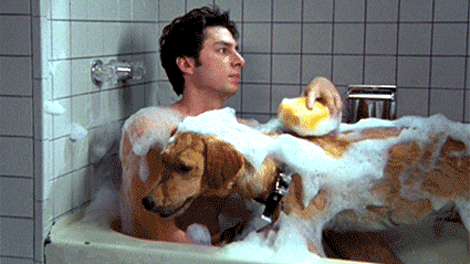British English and the Great Scone Battle
We recently took a look at some of the weird and wonderful ways the English language is, um, butchered, up and down the length and breadth of the British Isles. And when we’d finished chuckling at that, we realised; it’s not just what we say that’s funny, but how we say it, that is, on occasion, hilarious.
Don’t believe us?
Photo via Pixabay
Cream tea, anyone?
There are many things that divide the people of the nation: X Factor, Brexit, how to make a cup of tea properly. And whilst we’re making that tea, we’ll treat ourselves with a nice scone. The question is, how do you say scone?
And first, we should probably point out that we mean this kind of scone, in case you’ve never taken part in the Great Scone Pronunciation Debate. You can rhyme it with moan - because we’re British, so why wouldn’t we. Or you can rhyme it with gone - because they most likely will be if you leave your scones unattended.
A lot of people - and yes, this really is something we discuss - sneer that if you pronounce your scones the former way, it is an affectation, or you are unnecessarily posh. Cambridge University will tell you otherwise however; they have produced a glorious creation called The Great Scone Map, which shows how you say your scone (and other words) is just an indication of your geographical influences.
According to this map, you are more likely to say scone like moan if you are from southern Ireland or the Midlands, and like gone if you’re from Scotland, Northern Ireland, or northern England. The rest of the country is, apparently, a mixture of the two, and of course there are regional differences on top of national ones, but the point is, the same word can be said in an entirely different way depending on where you are from in the country.

No laughing in the bath via Giphy
Other great dividers
Because of course, it’s not just scones that lead to discourse if not said how people feel is correctly. If you’re from, broadly speaking, The South of England, try going Up North and having a conversation that involves the words laugh, bath, and path; because you might say this words as though they have an r in the middle of them (lar-f, bar-th, par-th - or bar-f and par-f if you’re feeling a bit Cockney), but for much of northern England they are more clipped, shortened a sounds.
If you say I want my bread buttered in your London accent in a chippy in Yorkshire, don’t be surprised if you get strange looks and a comment that it’s the fish that gets battered, not the bread. Because these two words often get mixed up for those who don’t know. Pro-tip: try saying, in the same London accent, the word funny to a northerner friend in the pub, and see if they don’t spit and giggle for what they think you just said. We are in a perpetual playground of innuendo, after all!
Outliers
And perhaps outliers is too strong a distinction, but there are words pronounced in very unique ways depending on where you are. The word tooth, ‘universally’ pronounced as you would imagine, rhymes with a squashed version of hoof in Birmingham. The number five when pronounced in parts of Yorkshire sounds less like hive, and more like you’re trying to say the word five with your mouth pinned open. And right in parts of Ireland sounds more like roit.

GIF via Giphy
Change is a-comin'
Because those same researchers who studied the way way take say our scones, have noticed that the regional diversity of dialects is starting to lessen. Using the English Dialects App to collect data, it looks like the overall accent of London and South Eastern England has become - is encroaching on that of the north. And London itself is constantly evolving to reflect its multiculturalism and tourism draw. The study mapped differences over the past 50 years; imagine what we will all sound like in another 50.
Influences do not just come from London, obviously. With much of our TV and film material filling our screens from America, there are those among us who either consciously or unconsciously adopt certain Americanisms into our everyday speech. And with the internet allowing us to keep in contact with friends and family no matter where they are in the world, it is fair to assume that English will constantly have outside influences. We’ll probably even steal a few more words, since we’re good at that too!
We’ve said it before, and we’ll say it again; please spare a thought for anyone learning English as a second language and having to deal with what we do to that language!



